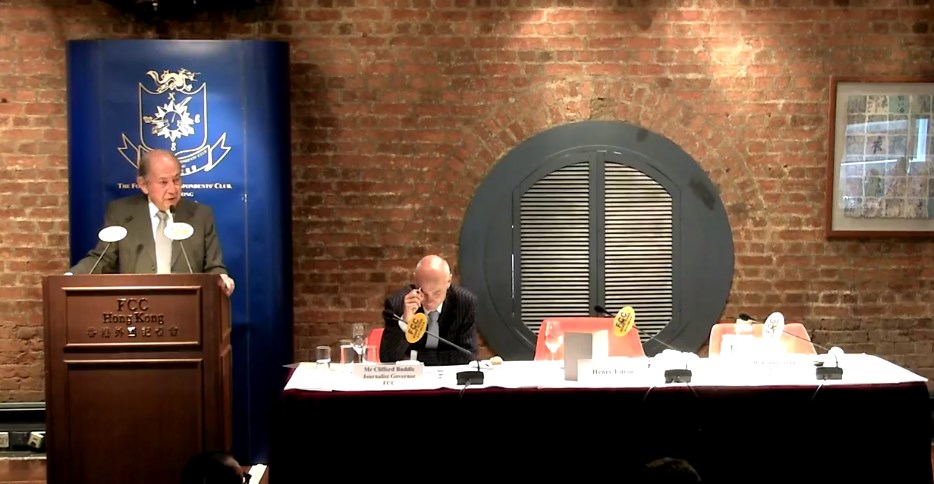Former Court of Final Appeal judge Henry Litton has said he does not believe that democracy activists Joshua Wong, Nathan Law and Alex Chow are likely to receive non-custodial sentences upon appeal.
Litton also said: “I do not see any threat to judicial independence in the situation as [it] exists today in Hong Kong.”

Litton made the remarks at a lunch at the Foreign Correspondents’ Club on Wednesday, when he spoke on the topic of judicial independence. Following his speech, journalist Cliff Buddle said that politically sensitive cases in Hong Kong have attracted much comment and criticism, and asked Litton what he thought of the statement made by 12 prominent overseas lawyers following the jailing of the three student leaders.
In response, Litton said, “There are really two cardinal points in sentencing. One, the court looks to the crime itself, its gravity, its effect on other people. That is the first point of consideration.”
“The court will then secondly consider such mitigating circumstances as exist which might reduce the normal tariff which would be applied for that particular crime. But no mitigating circumstance could be so superior as to downgrade the crime itself,” he continued.
Litton said that the cases mentioned “certainly involve violence” because “barriers erected by the police were broken down violently and… not only were people’s life and limb put at risk but people actually were injured.”
“When it comes to crimes involving violence… given those circumstances, the principle requires the court to impose a custodial sentence. That’s the first point.
“What mitigating circumstances there might be would perhaps reduce the term but generally speaking would not change radically the type of punishment to something less than imprisonment. These are the general principles which I suggest apply to the case in question,” he added.
Litton said that he has not read the judgment by the Court of Appeal, and that he only spoke in terms of principles applicable to proper sentencing.
Double jeopardy
Asked by former government chief information officer Mark Pinkstone whether there was double jeopardy in the case, Litton said, “The principle that you’re talking about is quite far removed from the situation in the present case.”

“An appeal by the Secretary for Justice to the Court of Appeal could only proceed on the basis of an error of law that in sentencing in the magistracy, the magistrate had not applied the proper principle relevant to the facts of the case. Constitutionally that’s how the matter got up to the Court of Appeal for its judgment and it has nothing to do with the principle of double jeopardy that you’re talking about.”
At a previous talk at the FCC, Litton commented that the system of judicial review was being “abused.”
